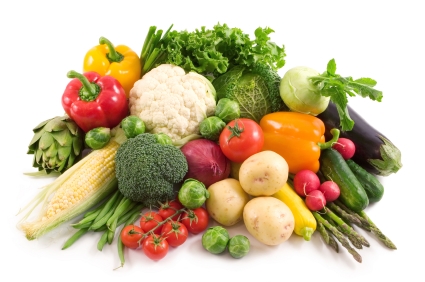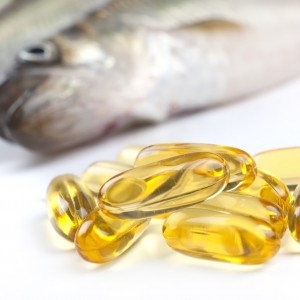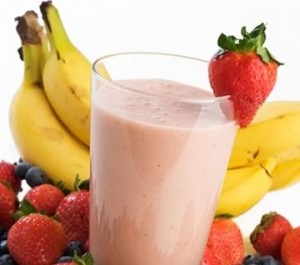
Jul
25
Nutrition is key for the foundation upon which sports performance is built.
Pre-season training is still heavily underway and players at all levels should hopefully be reaching their training goals, whether it is weight gain, loss or fitness for example. During pre-season training your body will be pushed to its absolute limits, and as players are getting stronger than ever the demands on the body mean adequate nutrition is vital to fuel your training and get maximum results to aid your performance on the pitch.
You should hopefully have the nutrition basics implemented into your nutrition plan, with reference to the EatWell Plate created by the Food Standard Agency (FSA). In conjunction with this you should also be concentrating on carb-loading on your training days (eg. Tues & Thurs), and depending on your specific goals, eating the correct types of foods during the rest of the week. This may by eating low fat foods, high protein foods or consuming appropriate sports supplements.
Although athletes should adopt the same dietary habits of the general population, the four core areas to focus on for optimum performance should be:
1. Carbs
Carbohydrates are where your energy will come from for pre-season, so eating enough of the right sources is a good place to start. Consume about 7g of carbohydrates per kg of body weight on rugby specific training days and match days.
2. Protein
Probably the most prevalent nutrient in rugby player’s diets as using whey protein supplements is extremely popular. Focussing on consuming about 2g of protein per kg of body weight is a good idea of how much you need to aid your training and recovery.

3. Fats
Often wrongly avoided in an athlete’s diet, however good fats (unsaturated) are essential to protect your vital organs and positively affect general health, as well as being a fuel source for long duration exercise. Do not be afraid of good fats; however tend to avoid high amounts just before or after intense exercise.
4. Hydration
The most important area to concentrate on all day, every-day, especially on your training and match days. Drink water all throughout the day rather than a lot at once and remember to weigh yourself before and after training to see how much fluid you have lost and therefore need to replace: 1kg body weight loss = 1-1.5L of fluid to be replaced (depending on weather conditions).
Considering the above, an idea of what to eat on a rugby specific training day would be:
07:30-09:00: 100g Scottish Oats, 1 large banana, 2tbsp pumpkin seeds, 600ml skimmed milk or low fat natural yoghurt. 30g Complete Protein Blend.
09:30: 1x piece of fruit.
11:00: 4x oatcakes with about 75g nut butter OR low fat cottage cheese.
13:00: 1x large 250g potato (or try sweet potato), 400g tin of mixed beans with a handful of broccoli/spinach
14:30: High protein flapjack. 1x Omega 3 fish oil supplement.
16:15: 1x large cajun spiced chicken breast with 250g of wholegrain rice. 1x portion of mixed veg (fresh or frozen).
17:45-19:00: 75g of Vitargo with 30g Pre Whey protein and sip before the session. 1x Omega 3 fish oil supplement.
19:00-20:00: 40g of Complete Hydration Drink OR flavoured iBCAAs during the session.
20:30: Drink 60g of Complete All in One. Take 1x Omega 3 fish oil supplement. 1x banana.
21:00: Extra small meal if necessary. Example: 3 egg omelette with mushrooms and mixed peppers OR High protein flapjack.
NB: Aim to drink an additional 2 litres of water on top of what is included with your shakes.

Summary:
Correct and adequate nutrition is essential to achieve optimum rugby performance. The main areas to focus on are carbohydrate, protein, fat and hydration.
The example diet plan is based on a day when doing your rugby specific training sessions, when you would need to carb load and hydrate slightly more than usual. The diet plan covers all areas of general and sports specific nutrition, such as:
• The FSA EatWell Plate recommendations
• Varied sources of nutrients
• Eating regularly to maintain metabolism
• Includes essential fats
• Sufficient fluid to stay hydrated
• Fast and slow release energy foods
• Appropriate supplements
• Recovery foods
Author Bio:
This article was written exclusively for Boroughmuir Rugby by Alison Hedley. Alison is a Senior Development Technologist for Bulk Powders, a sports nutrition company whose superb range of bodybuilding supplements includes Europe's lowest price whey protein and high quality carbohydrates.
Whilst completing her MSc in Sport & Exercise Nutrition she also worked at the Carnegie Centre for Sports Performance, advising athletes and sports teams on their diets. Alison is a very keen runner and is also a nutrition blogger for Find Rugby Now.









































